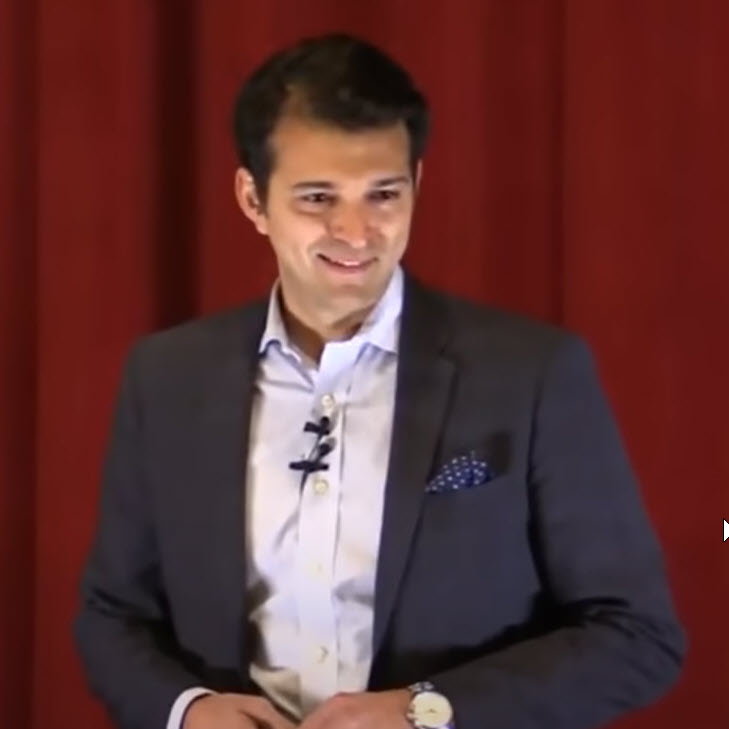Why is it that different people with many of the same tools and opportunities available to them don’t have the same level of success? Is it luck? Talent? The knowledge gained from “how-to” books?
According to motivational speaker Jeff Olson, success and failure are both a result of the Slight Edge (or the Success Over Time Philosophy, for clarity): the idea that success is built over time with small disciplines executed on a consistent basis.
According to Olson, there are a number of core principles to creating continual success that builds over time. Let’s explore each in detail.
Olson explains that showing up means determining a goal to pursue and taking the first step to pursuing it. For example, if you want to become a psychologist, you have to apply for school and show up to class. Olson argues that showing up is the first step to achieving your goal, as no progress can occur without it. After all, you can’t go on a journey if you don’t show up to the train station.
Why We Resist Taking the First Step
Showing up and taking the first step in pursuing a goal is arguably harder than Olson allows for. Most of us can probably remember a time when we delayed getting started on something (or chose not to start it altogether).
It’s possible that a large part of our resistance to getting started is a fear that if we try, we will fail. When we experience failure, we also experience shame, which is painful. As a result, we often choose not to put ourselves in the position to fail in the first place. However, while choosing not to try might protect us from failure, it also prevents us from experiencing the joy of success.
Keep these strategies in mind next time you want to overcome fear-based resistance to getting started on something:
Remind yourself that people are more worried about their own failures than they are about yours. People are usually thinking about themselves, not about you. Remembering this allows you to release the fear of judgment that keeps you from taking action towards success.
Don’t overthink. The more you overthink preparing to start your goal, the more overwhelmed you will feel, and the less likely you are to take action. Keeping your thoughts about your plans simple helps you to get out of your head and into action more quickly.
Reframe your anxiety. Think of it as a muscle you’re training yourself to work through and work with, rather than a hindrance. This helps you to develop the confidence to pursue your goals even when you’re afraid.
Next, Olson suggests that you commit to showing up for your goals on a consistent basis. Taking the first step on its own isn’t enough—the more consistent you are with your efforts to achieve something, the more likely you are to achieve it. For instance, if you want strong arm muscles, you can’t just do one push-up. You have to do push-ups consistently.
Build Consistency Using the “Seinfeld Strategy”
How can you build consistency in your efforts to grow? Olson doesn’t elaborate; so, let’s explore the strategy of Jerry Seinfeld, one of the most consistently successful comedians of all time.
Seinfeld has always produced his work at a steady, productive rate. (He may not always produce his best work, but he is at least consistent in his output.) According to young comedians who’ve discussed consistency with Seinfeld, his strategy is simple: He writes every single day, and every day that he writes, he marks an “x” on the corresponding day on a calendar. Overall, he follows one rule: Don’t break the chain of productive days.
You can follow this strategy with any goal using the following steps:
Make a list of the consistent actions you need to take to get closer to your goal.
Buy a calendar and a red marker.
Mark an “x” on every day you complete those actions.
Don’t break the chain of marks.
Olson argues that maintaining a good attitude is essential for success in the face of life’s ups and downs. For example, you might practice finding the humour in your failures or challenges.
Olson believes that positive energy benefits your ability to perform. Furthermore, studies show that if you maintain an optimistic outlook, you’ll live longer, be more productive, and have increased resilience.

You cannot solve today's time management problems with yesterday's time management. What we've noticed is the emergence of a new type of thinker. Somebody...

Carol Dweck, a professor at Stanford and the author of Mindset, studies motivation theory: asking what drives people to succeed, why people succeed (or...

Before building your network, it is essential to realise that you are only looking for 5 people who see the value of building their...